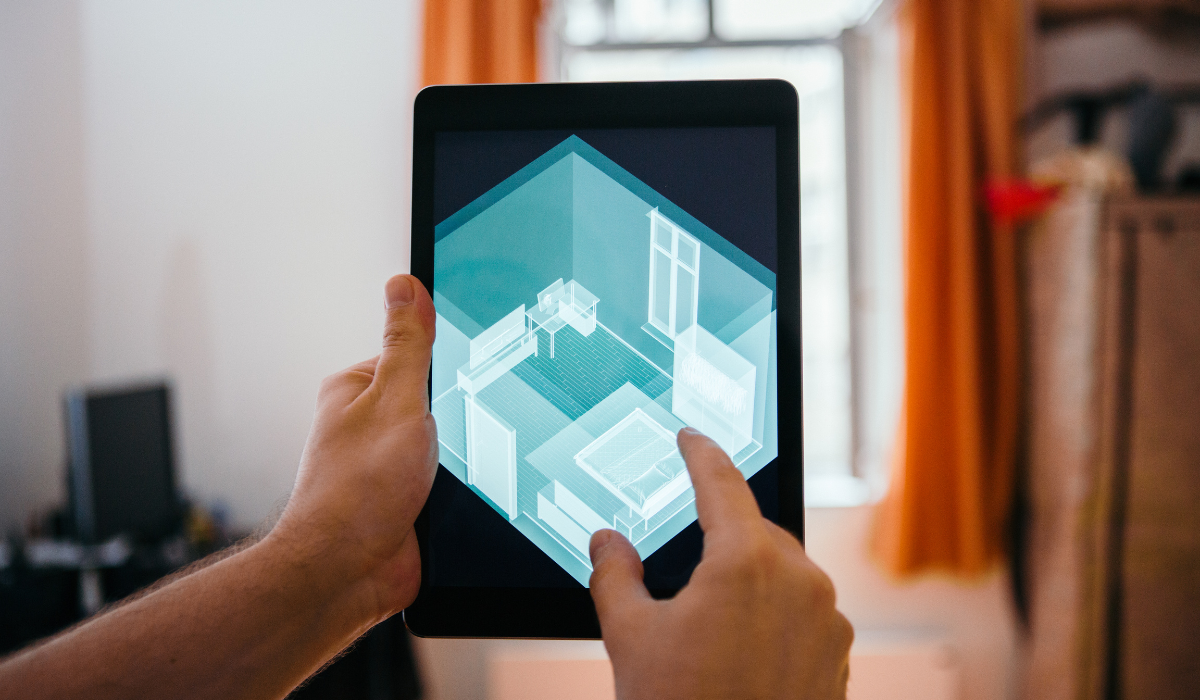
The real estate marketplace, much like most industries in the 21st century, is experiencing reforms at all levels. It’s no surprise that in a quest to make more profitable property decisions, eliminate inefficiencies and change the overall customer experience, the focus quite naturally turns to technology.
Table of Contents
Now, despite the need for improvement, the property rental marketplace industry has been on a purple patch since 2013. To get an idea of how big the industry is, the real estate market size stood at $10 billion in 2022 and is expected to reach $14.7 billion by 2030.
This is a remarkable figure that proves that technological advancement and innovation are the way forward for the online real estate business. Though this has been the case quite often in the recent past, it’s the startups who’re leading the charge. The future is quite exciting for those involved in the real-estate business.
In this blog, we take a look at some of the key technology trends that are expected to dominate the property rental industry in 2023.
Technology has a reputation for cutting down the time we spend on all sorts of work manually. Hence, while creating your online real estate business, you must understand that time is comparable to gold. And thus, you have to measure every ounce and utilize it to the best effect. But that’s a utopian view. You’re bound to come across customers that are not a good fit, yet they take away so much of your time.
This is not an ideal situation for many real estate companies to build a real estate website. And naturally, they are looking toward AI-powered chatbots. These chatbots can understand the customer’s preference and pass on pre-qualified data to the agents. Furthermore, these chatbots will ensure far better communication with the customers by quickly addressing their concerns in a sales process.
Property management is something that needs utmost attention but for a property owner who has multiple properties, this can be a tedious affair. Now. this is where AI comes to the rescue again. AI-powered homes are capable of automating most of the tasks that come under property management. So, for example, they can automatically set the rent based on market trends, screen tenants, and send alerts to contacts whenever an emergency arises.
And that’s not all. By applying the machine’s deep learning capabilities, the new-age brokerage firms will be able to help property managers find ideal properties, get more accurate real-estate valuations, take a look at under-utilized properties, and help buyers get an estimate of the future value of assets.
As a result of rising AI influence, today, a real estate app development company might proactively suggest you incorporate AI into the app to boost maximum traffic.
Interested to know how to choose the best app development company? Don’t miss out to check out the video below:
Blockchain has gained a lot of rep for enabling transparent and secure transactions. Their role in the real estate industry is unquestionably huge. Startups like Meridio and I-House employ blockchain to help users share ownership of their property and even make real estate investments that are accessible to a majority of people. Blockchain technologies’ role in managing, validating, and storing property documents to prevent fraud is very much a welcome change.
But of all its features, it’s the transactions’ transparency that gets more weightage. For instance, ShelterZoom makes use of an Ethereum-based platform that allows property buyers, sellers, and renters from across the globe to transact in real-time, with little or no paperwork. This allows users to cut out the role of a middleman and keep a check on any intermediary charges.
Big data analytics is one of the most sophisticated ways for all businessmen who want to take data-driven risks for business growth. It’s one of the highly anticipated technologies that uses both historical and real-time data. This data offer insights into patterns, demographic data, costings, and current trends, among other crucial factors.
But how does big data add value to the real estate marketplace? Let’s take a look at some of its benefits in the industry.
Now, take the example of some of the prominent real estate giants in the industry – Airbnb, Zillow, Trulia, etc. These companies largely depend on big data to fetch trend insights. It includes information on buying, selling, renting, internet traffic, and demographical data among other things. When the data is, finally, collectively analyzed it provides insightful information on the potential value of a specific property.
Also Read : How Do Mobile Apps Help Real Estate Businesses Attract More Customers?

The AR/VR technologies used by upcoming real estate startups have made the process of online property search experience more effective and convenient than ever. Just a few clicks and properties are available to experience as virtual tours!
This technology is turning out to be a blessing, especially for property managers. They are free from writing detailed instructions when the same can be demonstrated at every step of the way. The same has been proved by a survey from the National Association of Realtors. In that survey, where 87% of people found property pictures useful, and 46% of people preferred virtual tours.
The implementation of AR/VR technologies is also leading to the astonishing growth in the AR/VR market. And why wouldn’t that be the case? It’s incredible how AR allows you to superimpose images and build realistic images. It helps customers understand the property even before it is built. Furthermore, it allows you to make changes to the property designs as per your requirements.
Take the example of Roomy. An online real estate company that enhances your property buying experience by allowing users to add furniture and accessories virtually.
All the appliances that are digitally connected using cloud computing and constantly sending & receiving information fall under the technology of IoT. Now. the integration of IoT in the real estate marketplace gradually proving to be a game-changer! This technology has also created a world of ‘smart properties’ that easily incorporate both – physical and virtual worlds. And the stats prove just the same.
As per the IoT survey, the global IoT industry was $150 billion worth in 2018. And not just that, it is expected to reach $1.5 trillion by 2025. As a result of this significant growth in IoT technology, many real estate application development organizations include IoT functionalities for better user experience.
The property rental industry has always progressed as per the changing needs of the market. As technology looks to tighten its grip on new and old industries, the survival and growth of businesses will lie in their ability to adapt.
There is a growing consensus among industry experts that IoT will emphatically influence the real estate industry. If that were to prove true, developers will find their hands full with the job of integrating smart home and smart logistics capabilities into real estate development projects.
The winds in the real estate industry are definitely shifting and they’re shifting with the flow of technology.
